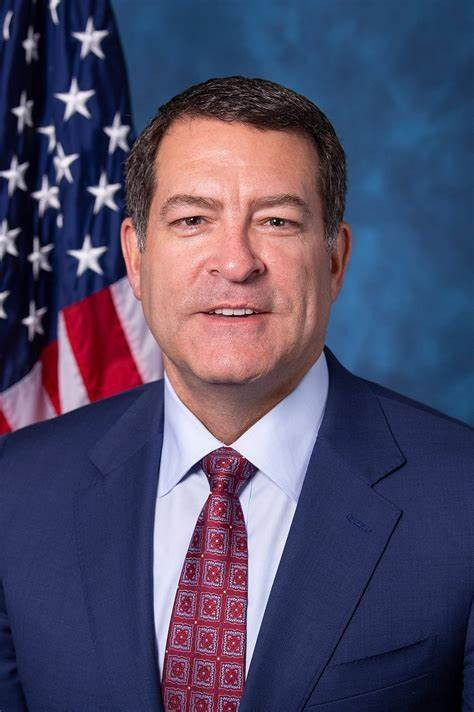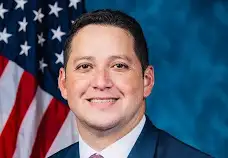|
|
Top Stories
A right-leaning disgruntled Republican comments on the news of the day and any other thing he damn-well pleases.
|
|
By BRITTANY BERNSTEIN, National Review, April 25, 2024 - The legislation would penalize any “adult who recruits, harbors, or transports an unemancipated minor” in Tennessee “for the purpose of receiving a prohibited medical procedure that is for the purpose of enabling the minor to identify with, or live as, a purported identity inconsistent with the minor’s sex or treating purported discomfort or distress from a discordance between the minor’s sex and asserted identity, regardless of where the medical procedure is to be procured.”
Violations would be charged as a Class C felony. Individuals found guilty of breaking the law could face three to 15 years of prison time and fines of up to $10,000. The measure also “authorizes a person who violates this amendment to be held liable in a civil action for such violation.”
Actions that violate the bill, S.B. 2782, would include talking to adolescents about a website where they can find information on where to access gender-transition services or helping a minor travel outside the state to receive such services.
The bill will now make its way to Governor Bill Lee’s desk for final approval. While Lee hasn’t publicly shared his position on the bill, he previously signed the state’s ban on gender-transition treatment for children. (read more)
If the transit proposal passes, the tax will begin on Feb. 1, 2025.
The city is hoping to receive $1.4 billion of federal funding toward transit projects over the next 15 years.
The project would include everything from sidewalks, signals and street work to corridor and transit improvements across the city.
“Ninety percent of Nashvillians told us through Imagine Nashville that they support investing in public transit and the Choose How You Move Program will get us where we want to go faster and safer, no matter how you’re moving,” Mayor Freddie O’Connell said in a statement. “This is the best opportunity we’ve ever had to build out our priority sidewalks, to synchronize signals so you’re spending less time at red lights, and to connect neighborhoods via a better transit system that doesn’t have to come downtown just to go somewhere else.
“This is about the sustainability of our workforce and this community, and how we bring the cost of living down so that our residents can afford to live here.”
The project will add 86 linear miles of sidewalk along with 592 new or upgraded traffic signals.
The designated transit corridors will put dedicated transit-only lanes in strategic locations on 10 of the city’s most used roadways on areas such as Murfreesboro Pike, Gallatin Pike, Nolensville Pike, Dickerson Road, West End, Charlotte Pike and Bordeaux/Clarksville Pike.
The Choose How You Move project includes 12 modern transit centers, 17 Park & Ride facilities and double the hours of our high-frequency daily service and increase total bus service by almost 80%.
By Jon Styf , The Center Square, April 24, 2024- A bill making it a misdemeanor punishable by just less than a year of imprisonment for assisting in bringing a minor across state lines for an abortion without parental permission is headed to the desk of Gov. Bill Lee.
An amended Senate Bill 1971 was concurred by the Senate 25-4 after passing the House 74-24.
Sen. Paul Rose, R-Covington, told members the bill’s goal is to protect parental rights and prevent other adults from assisting a minor in circumventing Tennessee law in obtaining an abortion.
The amended bill exempted common carriers transporting passengers during regular service – such as by bus, train or airplane – and also exempts ambulance drivers.
Sen. Jeff Yarbro, D-Nashville said he was disappointed the amendment didn’t fix the issues he has with the bill, including the “vagueness of terms” and “clear intent to target travel between states and the clear intent to target communications and First Amendment communication of information.”
“I don’t think this has done the job and this remains a pretty bad bill,” Yarbro said.
The offense would be called abortion trafficking and can only be avoided with signed and notarized parental consent.
A Tennessee trigger law passed in 2019 went into effect 30 days after the Supreme Court overturned Roe V. Wade.
“This bill is a direct on me, on my family, on my friends, on my network that support Tennesseans that are pregnant and vulnerable minors that need access to care to go across state lines and receive the necessary care,” said Rep. Aftyn Behn, D-Nashville.
|
|
|
"It’s not to inform, lord knows. It’s not really to persuade, either. Fox News and MSNBC may get a few “leaners” from the other side tuning in from time to time, but spend an evening watching their prime-time lineups and you’ll see that they’re not geared toward reasoning with the center. They know where their bread is buttered. |
The purpose of partisan media is to validate the beliefs of readers or viewers, especially their belief that they’re morally superior to their opponents." The Dispatch, Boiling Frogs, Nick Catoggio, Apr 23, 2024 |

The bill passed the House with overwhelming bipartisan support. However, more Republican voted against the aid package than voted for it. Every single Democrat who voted, voted for it.
Of Tennessee's nine representatives, only three voted for the aid packet. One was Democrat Steve Cohen and the other two were Republicans Chuck Fleischmann and David Kustoff.
 |
| Rep. Mark Green voted against aid to Ukraine |
To say the least, I am disappointed. I am most disappointed in Mark Green. I have always liked Mark. I have contributed to his campaign, attended his campaign functions and his annual fish frys, have heard him talk at functions such as First Tuesday, and I subscribe to his newsletter. I thought I knew him. I viewed him as a level-headed, smart, solidly conservative, defense hawk. I was proud to have him as my congressman. I sort of feel betrayed. It almost makes me miss Jim Cooper.
This vote further alienates me from the Republican Party and what passes for contemporary conservatism these days. I had already discontinued by financial support for Republican Party organizations. If Tennessee had party registration, this would be the vote that would cause me to change my registration from Republican to Independent. I am out of step with the modern Trump-era Republican Party. I don't feel at home in the Republican Party. I feel orphaned. My tribe moved off and left me.
 |
| Rep. Tony Gonzales |
 |
| Scary fear-mongering image used by Tennessee Stands to generate opposition to updating the Uniform Commercial Code |
The Uniform Commercial Code (UCC) is a comprehensive set of laws governing all commercial transactions in the United States. It is not a federal law, but a uniformly adopted state law. As the Uniform Law Commission (ULC) explains, uniformity of law governing commercial transaction is essential for the interstate transaction of business. Because the UCC has been universally adopted, businesses can enter into contracts with confidence that the terms will be enforced in the same way by the courts of every American jurisdiction. The resulting certainty of business relationships allows businesses to grow and the American economy to thrive. For this reason, the UCC has been called “the backbone of American commerce.” (1)
The ULC was established in 1892 and has been working to harmonize state laws governing commercial transactions since then. Usually, the work of the ULC is not controversial. ULC is a private organization that develops the UCC and then each state may adopt the code. The code was first published in 1952 and forty-nine of the states have adopted it. The UCC is from time to time amended to reflect innovations in commercial transactions. When it is amended then the amendments are submitted to the states for adoption. Usually this is routine.
A recently proposed update of the UCC has proven controversial. The attempt to modernize the UCC is in response to the impact of new technologies on commercial transactions over recent years including digital assets, cryptocurrencies, and NFTs. The proposed amendments in short redefines money. This was in response to El Salvadore and Central African Republic adopting Bitcoin as legal tender. As CATO explains, "Because Bitcoin is legal tender in those countries, it should be considered money within the current version of the UCC since it is a “medium of exchange…authorized or adopted by a…foreign government.”
This is a problem. "If Bitcoin is money within the UCC, then it changes how someone would go through the necessary legal steps to secure an enforceable legal claim on Bitcoin as collateral for a loan. Likewise, it changes how jurisdiction is determined, as the location of the money in question is where the UCC assigns jurisdiction. Before Bitcoin became legal tender and thus money within the UCC, the jurisdiction would simply have been wherever the debtor in question was located." (2) This gets complicated, and some argue that this is a good thing for Bitcoin. To dig deeper into this, see the CATO article.
Some view the redefinition of money as paving the way for Central Bank Digital Currencies (CBDC). There very well may be privacy concerns with CBDC's. However, as CATO concludes, "while the risks posed by CBDCs should not be understated, this change to the UCC does not appear to be the Trojan Horse that it appears to be at first glance."
For more on this issue see, Why Ron DeSantis and Others Are Wrong on UCC's Role in Crypto and CBDCs - Barron's (barrons.com) To read the bill and the legislative analysis see, Tennessee General Assembly Legislation (tn.gov)
 |
| Carol McCoy |
by Rod Williams, April 18, 2024- Things just seem to not improve at the Metro Arts Commission. I don't see how they could get much worse, but they are not getting better.
The last thing to occur is that an ethics complaint was filed against Carol McCoy, a member of the Metropolitan Arts Commission. The way it looks to me is that she was doing nothing but doing her job as a conscientious member of the Arts Commission.
Carol McCoy is the former Davidson County Chancellor, who served two decades on the bench. She was first elected Chancellor of the Chancery Court, Part II, Davidson County Tennessee in August 1996 and re-elected Chancellor in 1998, 2006 and 2014. She has an impressive resume and has served on various boards for nonprofit organizations in Nashville. She was the first female President of the Tennessee Judicial Conference and a founding member of the Lawyers Association for Women.
Carol has served as a Commissioner on the Tennessee Arts Commission as well as Trustee for Watkins School of Art, Film, and Design. She was appointed to the Metro Arts Commission by Mayor Freddie O'Connell in April 2023, along with three other new commissioners.
The ethics complaint is that McCoy discussed and voted on matters not on the agenda of Arts Commission meetings thus violating open meetings rules, publicly humiliated a Black female Arts Commission employee by questioning her qualifications and made racist and classist remarks concerning certain members of the arts community.
As to humiliating a Black employee, the employee was the new Director of Finance for the Arts Commission introduced to the Commission during the meetings of November 16, 2023. The complaint says McCoy "aggressively" asked, "You’re the director of Finance? What qualifications do you have?”. The Complaint says she challenged the qualifications of the Black female employee but not the qualifications of the two White female employees, and this caused the Black employee to become visibly upset and exit the room in tears.
As far as making racist and classist remarks, one of the examples to support that charge is that during a meeting she said the following:
I have been a member of many nonprofits. I don't think I've ever been on a micro agency that has a budget of $25,000. That is not even enough to pay one staff person, so it occurred to me that if you give money to a micro agency or to an individual, how do you do it in such a way it can be accounted for and properly used.
The other evidence to support the charge of racist and classist remarks is that she said this:
People who come in who just want to start a new venture. Their application is woefully poor, you wouldn't award anyone that money until you thought it would be handled properly... The one I remember was the Chinese New Year's festival, it was a little group of people getting together and I think they asked for $5,000 but the grant was just so poorly written, maybe if they'd gone to the center for nonprofits they might have gotten some help.
I can't believe it. In the above examples it sounds like someone simply doing their job. Those are the kinds of questions and comments I would expect from a responsible board member.
The Metro legal department concluded the complaint, if true, did not violate ethical standards and should be dismissed. On April 5th, the Board of Ethical Conduct unanimously voted to dismiss the complaint (1).
This is just the latest in the drama that has been going on at the Arts Commission for years. For more on the topic, see the following:
By Jon Styf, The Center Square, April 19, 2024- Several pieces of Tennessee legislation could see action in the next week, with the bills either held from long calendars or intentionally delayed for further discussion.
The state’s amended $52.8 billion budget bill, however, passed both the House and Senate.
The reduced budget comes as Tennessee beat its budgeted tax collections by $17.6 million in March but remains $420 million behind budgeted estimates for the first eight months of the fiscal year.
Next year's budget is $10 billion less than the budget for this fiscal year.
“After years of record-high revenue growth, the state’s revenues have normalized,” said Senate Finance Chairman Bo Watson, R-Hixson. “We’ve tightened our belts and kept recurring expenses low to alleviate future financial burdens. Despite declining revenues, this budget maintains low taxes while also providing services to those in need, particularly disabled and vulnerable populations.”
Conference committees were named to debate the different House and Senate versions of a franchise tax repeal and rebate with the House version refunding $713.6 million or one year of franchise tax while the Senate passed a version worth three years of franchise taxes for an estimated $1.6 billion.
The House version also requires the companies receiving a refund to be named on the website of Tennessee’s Department of Economic and Community Development and those companies to first use any department tax credits to offset the refund amount.
Reps. William Lamberth, R-Portland, Ryan Williams, R-Cookeville, Patsy Hazlewood, R-Signal Mountain, Gary Hicks, R-Rogersville and Larry Miller, D-Memphis will be joined by Sens. Jack Johnson, R-Franklin, Raumesh Akbari, D-Memphis, John Stevens, R-Huntingdon, Watson and Ken Yager, R-Kingston.
Progress on statewide educational savings accounts slowed to a halt, with the bills held in Senate and House Finance, Ways and Means without progress and with reports that the bills are close to not moving forward this session.
Meanwhile, a concealed carry bill for school employees on school grounds passed the Senate before the House held the Senate version on the desk.
Changes to the state’s certificate of need laws will next be discussed in the Senate as soon as next week.
by Rod Williams, April 22, 2024- I am pleased that the House has finally, after a six-month delay, approved aid for Ukraine. I just hope that it is not too late. The vote was 311 in favor of aid and 112 opposed. Of those 112 opposed all were Republicans. Of the Republicans casting votes on the aid, 98 voted in favor and 112 against. (1)
I am beyond disgruntled and am downright disgusted that the Republican Party has become the party of Putin appeasement. I, for the most part, stopped giving money to Republicans in 2021 because I did not want to help elect to public office those who oppose the peaceful transfer of power and continue the big lie, that the 2020 election was stolen. Now, I have another reason not to support Republicans. I do not want to help elect to Congress people who are enablers of Putin's aggression.
All of my life it was Democrats who did not want to assist nations resisting aggression. It was Democrats who were for stopping funding for wars, pulling the rug out from under our allies, and skimping on funding the military. Often foreign policy has been bipartisan and there have some notable Democrat defense hawks, but when there has been an "anti-war," peace faction, it has been among Democrats.
One of the arguments that those opposed to helping our allies will use, is that we just can't afford it. People will say things like we should take care of people at home before sending money overseas. They will say we should help our veterans before helping starving people in Africa or before helping Ukraine resist aggression. We spend a lot of money on foreign aid, for sure. For that aid we stop aggressors from achieving their aims, help people remain free, we gain influence and goodwill around the world, and we provide relief for starving and war-ravaged people in need. In my view, it is money well spent. Sure, one can quibble about this or that particular expenditure, but in general foreign aid is the right thing to do and is money well spent.
I suspect some people think foreign aid is a major slice of the budget. It is not. It is usually about 1% of the federal budget and is currently less than 2%. For more on where our foreign aid goes and what it pays for visit this link.
|
|
|
|
|
